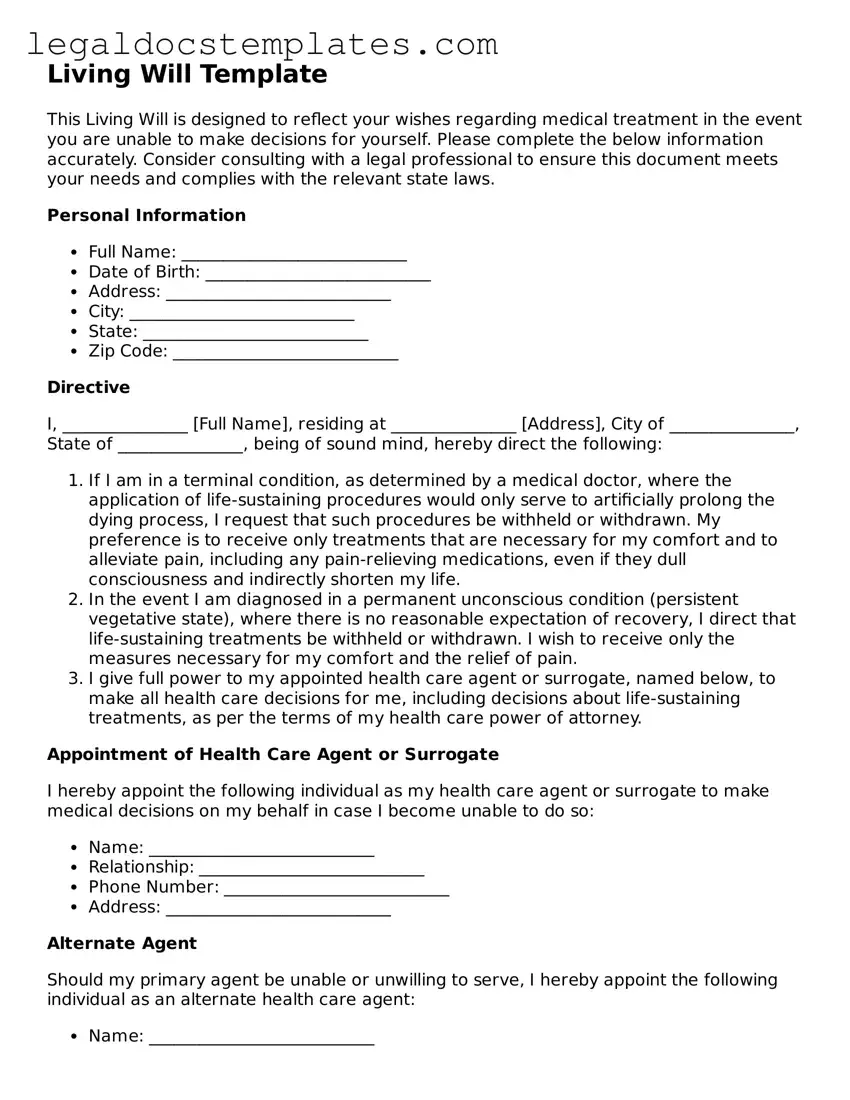Living Will Template
This Living Will is designed to reflect your wishes regarding medical treatment in the event you are unable to make decisions for yourself. Please complete the below information accurately. Consider consulting with a legal professional to ensure this document meets your needs and complies with the relevant state laws.
Personal Information
- Full Name: ___________________________
- Date of Birth: ___________________________
- Address: ___________________________
- City: ___________________________
- State: ___________________________
- Zip Code: ___________________________
Directive
I, _______________ [Full Name], residing at _______________ [Address], City of _______________, State of _______________, being of sound mind, hereby direct the following:
- If I am in a terminal condition, as determined by a medical doctor, where the application of life-sustaining procedures would only serve to artificially prolong the dying process, I request that such procedures be withheld or withdrawn. My preference is to receive only treatments that are necessary for my comfort and to alleviate pain, including any pain-relieving medications, even if they dull consciousness and indirectly shorten my life.
- In the event I am diagnosed in a permanent unconscious condition (persistent vegetative state), where there is no reasonable expectation of recovery, I direct that life-sustaining treatments be withheld or withdrawn. I wish to receive only the measures necessary for my comfort and the relief of pain.
- I give full power to my appointed health care agent or surrogate, named below, to make all health care decisions for me, including decisions about life-sustaining treatments, as per the terms of my health care power of attorney.
Appointment of Health Care Agent or Surrogate
I hereby appoint the following individual as my health care agent or surrogate to make medical decisions on my behalf in case I become unable to do so:
- Name: ___________________________
- Relationship: ___________________________
- Phone Number: ___________________________
- Address: ___________________________
Alternate Agent
Should my primary agent be unable or unwilling to serve, I hereby appoint the following individual as an alternate health care agent:
- Name: ___________________________
- Relationship: ___________________________
- Phone Number: ___________________________
- Address: ___________________________
Signatures
This Living Will shall be effective upon my signature and shall remain in effect until I revoke it. I understand the full import of this document.
Date: _______________
Signature: ___________________________
State of _______________
County of _______________
Subscribed and sworn to before me this __________ (date), by _______________ (name of declarant).
Notary Public: ___________________________
My commission expires: ___________________

